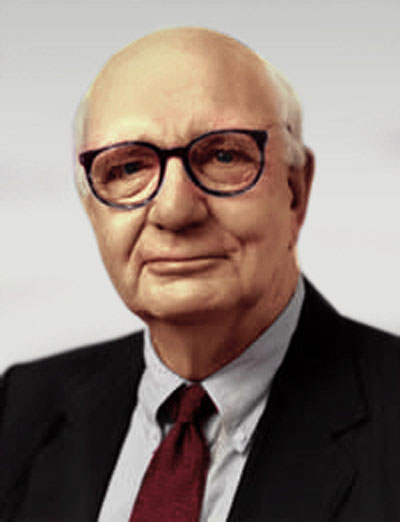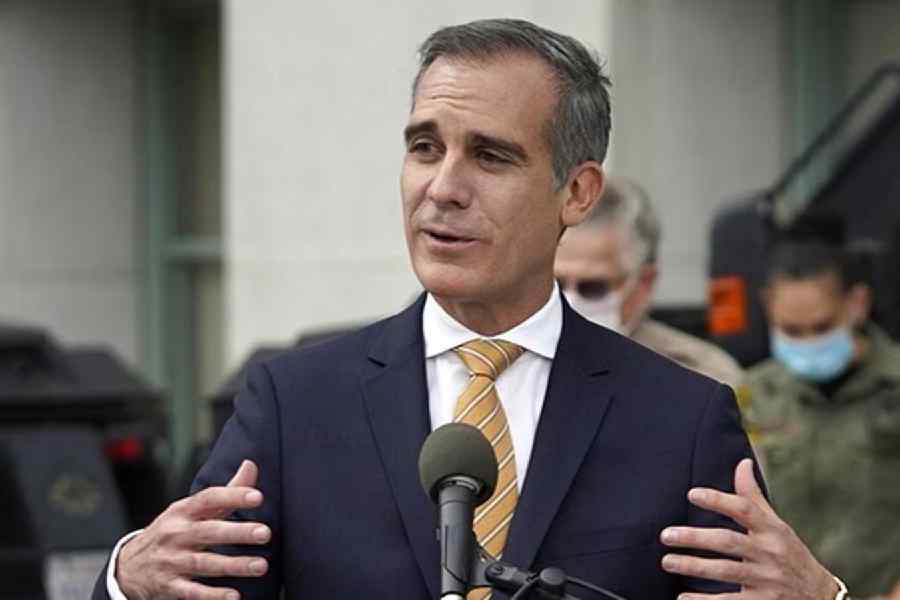Paul A. Volcker, who helped shape American economic policy for more than six decades, most notably by leading the Federal Reserve’s brute-force campaign to subdue inflation in the late 1970s and early ’80s, died on Sunday in New York. He was 92.
The death was confirmed by his daughter, Janice Zima, who did not specify the cause. Volcker had been treated for prostate cancer, which was diagnosed in 2018.
Volcker, a towering, taciturn and somewhat rumpled figure, arrived in Washington as America’s post-war economic hegemony was beginning to crumble. He would devote his professional life to wrestling with the consequences.
As a treasury department official under Presidents John F. Kennedy, Lyndon B. Johnson and Richard M. Nixon, Volcker waged a long, losing struggle to preserve the postwar international monetary system established by the Bretton Woods agreement.
As a senior Federal Reserve official from 1975 to 1987, in addition to battling inflation, he sought to limit the easing of financial regulation and warned that the rapid growth of the federal debt threatened the nation’s economic health.
In his last official post, as chairman of President Barack Obama’s Economic Recovery Advisory Board, formed in response to the 2008 financial crisis, he persuaded lawmakers to impose new restrictions on big banks — a measure known as the “Volcker Rule”.
Volcker interlaced his long stretches of public service with a lucrative career on Wall Street, most prominently as chief executive of the investment bank Wolfensohn & Company.
His reputation for austere integrity also made him a popular choice as an independent arbiter. In one instance he oversaw the reclamation of deposits that Swiss banks had failed to return to the families of Holocaust victims.
His defining achievement, however, was his success in ending an extended period of high inflation after President Jimmy Carter chose him to be the Fed’s chairman in 1979.
He prevailed by delivering shock therapy, driving the economy into a deep recession to persuade Americans to abandon their entrenched expectation that prices would keep rising rapidly.
The cost was steep. As consumers stopped buying homes and cars, millions of workers lost their jobs. Angry homebuilders mailed chunks of two-by-fours to the Fed’s marble headquarters in Washington. But Volcker managed to wring most inflation from the economy.
His victory inaugurated an era in which the leaders of both political parties largely deferred to the central bank, allowing technocrats to chart the course of monetary policy with little political interference.
Ben S. Bernanke, the Fed’s chairman from 2006 to 2014, kept on his bookshelf one of the chunks of wood that Volcker received during the anti-inflation campaign.
“He came to represent independence,” Bernanke said in an interview for this obituary. “He personified the idea of doing something politically unpopular but economically necessary.”
Proud, confident and 6-foot-7 in socks, Volcker struck many as remote and intimidating. Those who knew him well said the gruff exterior concealed a shy man with a puckish wit. His first wife told a biographer that she had waited vainly for a proposal before she finally asked him if he wanted to marry.
He was famously frugal, favoring drugstore cigars and ill-fitting suits. In the 1960s, when the driver’s seat in his Nash Rambler collapsed, Volcker propped it up with a chair and continued to drive the car. As chairman of the Fed, he lived in an apartment building populated by George Washington University students and took his laundry to his daughter’s house in the Virginia suburbs.
His time in the national spotlight began in August 1979. Volcker was known to be frustrated with the Fed’s halfhearted efforts to curb inflation, leading Carter’s aides to warn that he might drive the economy into recession.










